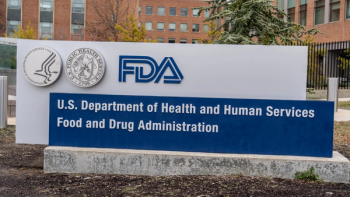
How much should pharma CEOs get paid?
US pharma CEO salaries are still dwarfing the earnings of their European counterparts, but, with the industry and the economy currently in crisis, Jacky Law asks how long this can continue.
The Wall Street Journal (WSJ) recently published its US CEO compensation survey,1 or Rich List, for 2008. This is interesting on a couple of counts. One is that it shows healthcare (largely pharma) CEOs earn more than anyone else. The average total compensation package for CEOs in the healthcare industry was $12.4 million (EUR 9.55 million) that year, which compares with just $8.8 million (EUR 6.78 million) in technology companies, $8.7 million (EUR 6.7 million) in consumer goods, $8.2 (EUR 6.2 million) in oil and gas, and $7.6 (EUR 5.85 million) in financials (including the hapless banking sector). The second thing the survey shows is that pharma companies are fairly egalitarian in how they compensate their CEOs. Their top US pharma earner, Miles White of Abbott, may have been ranked 19th on the WSJ list of 200 companies, with a total package of just over $18 million (EUR 13.86 million). But then came a stream of pharma players, taking positions very close to each other in this top quartile of earners and ensuring a healthy industry average.
Any sense of fair play, however, is confined to that small number of people who head up pharma companies earning more than $5 billion (EUR 3.85 billion) a year and are based in the US. From a European perspective, the packages of US CEOs have always seemed high.
In a 2007 survey, the internet news service FiercePharma listed the top 17 pay cheques in pharma. Then, Abbott's White also took the lead, but the four bottom positions, taken respectively by CEOs at GlaxoSmithKline, Bayer, AstraZeneca and Sanofi-aventis in 17th place, were all European. They also command companies with earnings above $5 billion (EUR 3.8 billion) but earn a fraction of what is acceptable in the US.
Moreover, the tens of thousands of pharma employees who are losing their jobs around the world don't take too kindly to such generosity from shareholders, especially when they see pharma share prices moving steadily downward. In the first quarter of 2009, the EvaluatePharma database shows that the only company to see a rise in its share price and which wasn't subject to a takeover, was generics company, Teva Pharmaceutical Industries.
Table 1 shows not only that a generics company is the best-performing company, excluding takeover targets, but that stock in majors such as Takeda, Novartis and Pfizer lost more than 20% of their value in the first three months of this year. Some of this poor performance is down to circumstances beyond the control of individual pharma boards, such as US President Obama's determination to bring down the cost of medicines. Nevertheless, it will be interesting to see how long US CEOs can hold onto their compensation packages if values don't start looking up soon.
It's still a question of "so far, so good" for those at the top. Wyeth CEO Bernard Poussot is reported to have been offered a golden handshake of $24.3 million (EUR 18.71 million) if he leaves within three years of the deal closing, plus $28.8 million (EUR 22.18 million) in cash for stock, options and incentives. If he stays he is said to still be assured of $18 million (EUR 13.86 million). These amounts are large in anyone's book. However, the interesting question is not if CEOs are worth what they are paid, but on what criteria they are judged, and not only by compensation committees and shareholders. In an age when innovation is in such short supply, the brightest employees have a louder voice, which is why everyone is watching so closely what happens as Roche starts to bring a hostile Genentech under its control. The best scientists, however much they are offered, can always cash in their share options and take a few years off or move elsewhere. Roche and its shareholders may lose out but the scientific community benefits.
Top management at Roche may or may not be able to retain the spark that made Genentech such a successful company. If they fail and the deal proves a disaster, the chances are, as things stand, this will not be reflected in the CEO's pay. Nevertheless, the scientists who created Genentech can take some comfort from the fact they have a lot more choices than the suits at Roche they have resisted so fiercely. Because, as everyone knows, innovation is the only thing that matters in pharma.
Notes
1. The companies include the first 200 US corporations with 2008 revenues greater than $5 billion that had filed their proxy statements by March 2009. As more companies are added, the rankings will change.
Top winners and losers in the first three months of 2009 among large cap (+$30 billion) pharma companies:
Source: EvaluatePharma.
Newsletter
Lead with insight with the Pharmaceutical Executive newsletter, featuring strategic analysis, leadership trends, and market intelligence for biopharma decision-makers.



